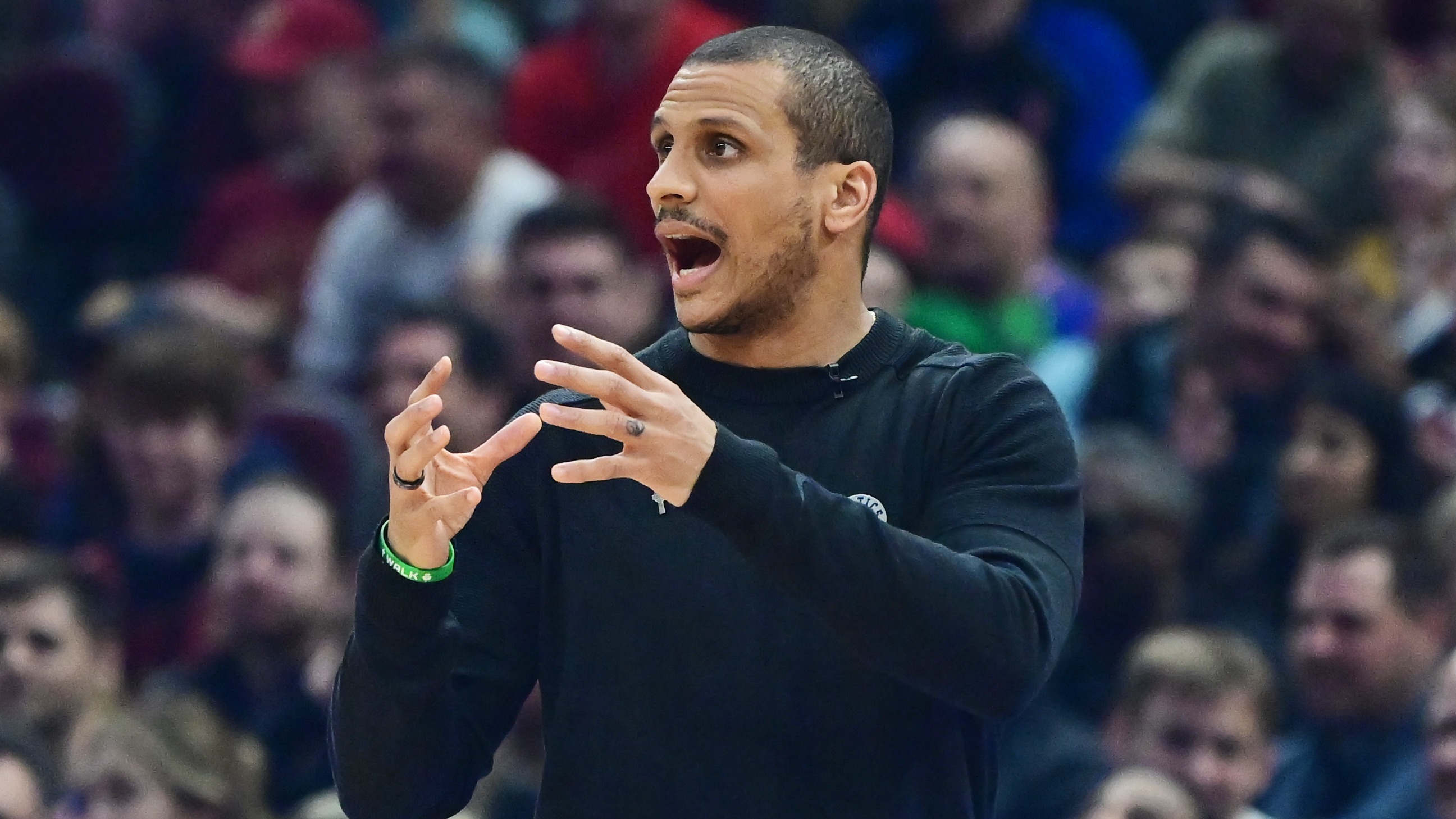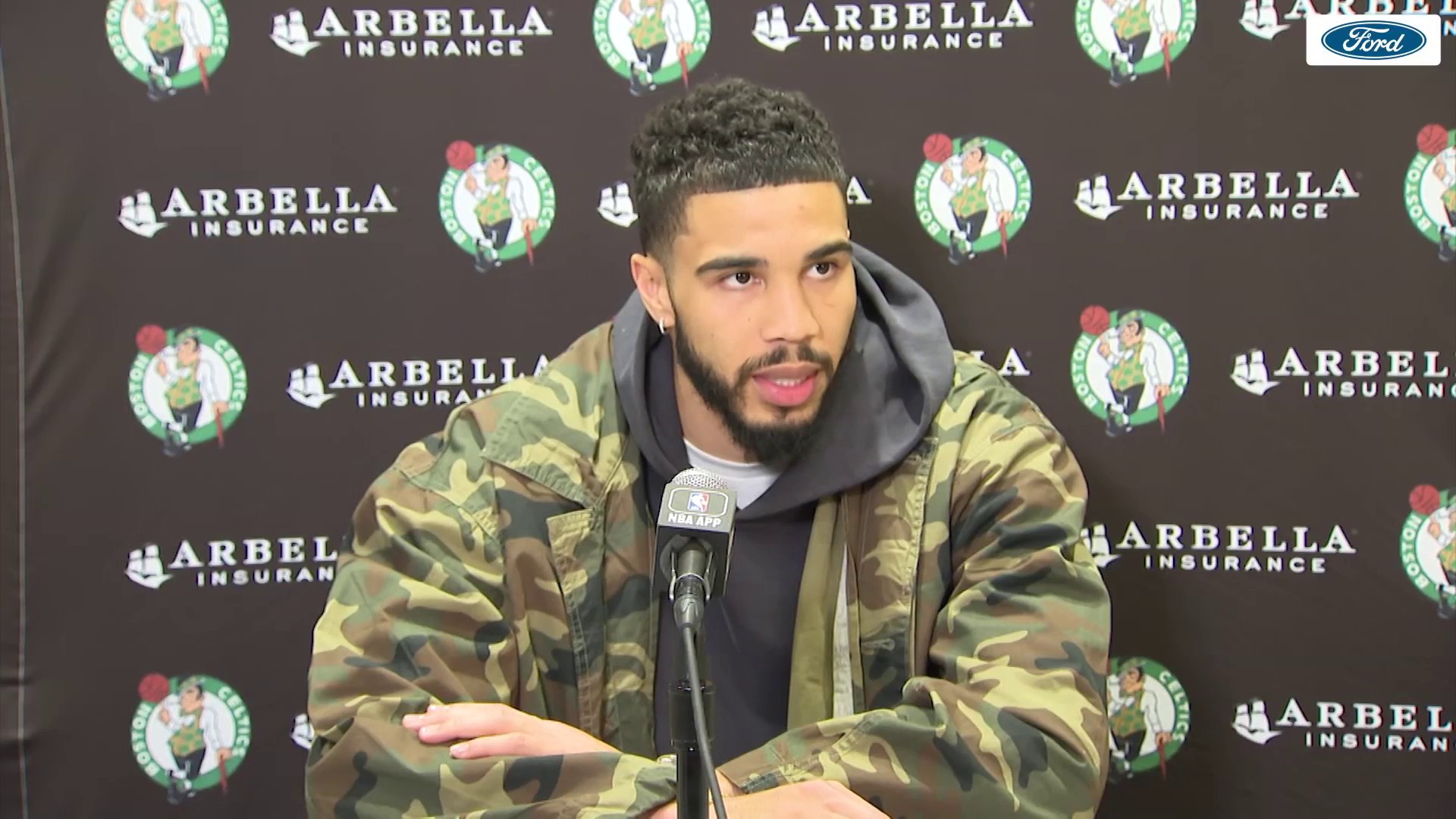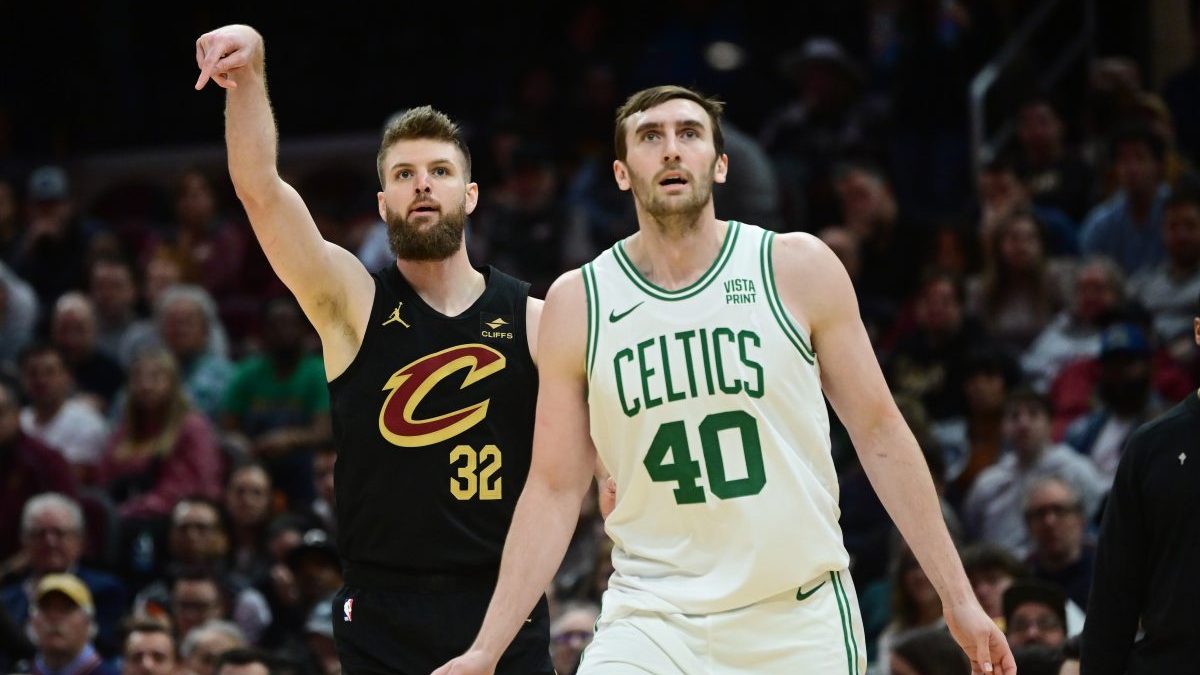Nineteen.
Jayson Tatum dribbled the ball 19 times before hoisting the final shot in Cleveland on Tuesday night, a back-rim miss on a contested fadeaway as the Celtics fumbled away a 22-point fourth-quarter lead and watched their 11-game winning streak end against the undermanned Cavaliers.
The Celtics had 19.1 seconds to generate a quality look, chase a second-chance opportunity, and/or foul to extend the game. Instead, Tatum dribbled the ball 19 times while Joe Mazzulla’s overdue request for a timeout went unnoticed, and the Celtics suffered a loss for the first time in over a month.
Stay in the game with the latest updates on your beloved Boston sports teams! Sign up here for our All Access Daily newsletter.
Let’s get a few disclaimers out of the way here before we (mildly) vent:

- The Celtics had a horrendous fourth quarter that featured plenty of missteps, which only served as the lukewarm appetizer for the overcooked final possession. The Celtics never should have been in a spot where Tatum even had the chance to dribble out the final 19.1 seconds and settle for a suboptimal look.
- Boston has been much better in crunch-time games (score within five points, final five minutes) this season. In 2022, the Celtics were an impossibly bad 13-22 in crunch-time games and still marched to the NBA Finals. History suggests there is no such thing as crunch time momentum and teams can spend the season learning how to thrive in late-game situations.
- It feels unseemly to vent about a team with a 48-13 record with a 7.5-game lead over the nearest rival in the Eastern Conference. But with championship aspirations comes heightened scrutiny of the miscues. And late-game execution is one of the few nits we can still pick with this obviously talented team.
But now the venting: Tatum absolutely cannot go that slowly on the final possession. Mazzulla absolutely cannot let Tatum go that slowly on the final possession. A team that prides itself on playing with pace, moving the basketball, and identifying an ideal matchup cannot settle for a 19-dribble fadeaway.
A single loss does not change how we view this team. The Celtics are still the championship front-runner with a loaded roster. But a championship front-runner with a loaded roster absolutely should not fumble away a 22-point lead against a Donovan Mitchell-less Cavs team.
Yes, the Celtics’ crunch-time numbers look good this year. But they get a little less sexy the more you crunch:
And there are other concerning numbers when you zoom in on the crunchiest of moments:
We understand Mazzulla’s desire to use tense regular-season moments to build the team’s composure for when the postseason arrives. There will be times on the postseason stage where Mazzulla won’t be able to call a timeout before a must-have possession. You can absolutely make a case that it’s far better to take those lumps now than when it matters most.
The Celtics, dominant throughout their recent winning streak, hadn’t even played a crunch-time game since Feb. 11 in Miami. Mazzulla dismissed the notion that the team might be rusty in those situations. But the frustrating part for observers is that Boston doesn’t always seem to learn from past missteps.
You can absolutely learn from losses. We’re simply not sure we’ve seen that progress with this team, at least in late-game moments. And it’s undeniable that a higher percentage of games will trigger the clutch criteria in the postseason. The Celtics, having routinely made their lives more difficult by extending series in past years, should desire to own those moments.
Or maybe they’ll just blow the doors off opponents throughout the playoffs and it won’t matter. You can re-share this article and mock the consternation if they cruise through May and June.
With little left to accomplish this regular season, we yearn to see tangible progress.
Kristaps Porzingis, forever the beacon of positivity, suggested this was a good loss for the Celtics. We’re not ready to go that far but we understand his suggestion.
We like the way Tatum took some accountability for the late-game woes. We like how Mazzulla didn’t hide from the fact that his team went too slow (and also subtly needled Tatum for a bonus-inducing foul in the final two minutes with Boston already trailing by three).
And we really like Jaylen Brown’s bold declaration that Boston couldn’t just dismiss the loss and how he yearned to learn from the film. You know the old saying: Those that cannot remember the past are condemned to repeat it.
We’re absolutely nitpicking. But when nine of your 13 losses came in one-possession games with under three minutes to play, it seems to suggest that, 1) You barely ever get blown out (which is good!) and 2) You’re struggling to close out close games (which isn’t good).
MORE CELTICS COVERAGE
You almost certainly won’t survive in the postseason if you can’t win close games. The Celtics have the best offense in the NBA and can’t have a 17-point fourth quarter. The Celtics have the second-best defense in the NBA and can’t let Dean Wade key a 34-point Cavs outburst.
And even if we’re perfectly fine with the notion of putting the ball in your best player's hands for the final shot, you simply cannot watch Tatum dribble 19 times over 19 seconds and let the game come down to a contested jumper.
If the Celtics win Thursday night in Denver — particularly in a crunch-time game — everyone will forget about Tuesday’s trip-up. But, at least for a moment, the rare stumble shows there’s still room for improvement from a team that often looks like it’s on another level than the rest of the league.



